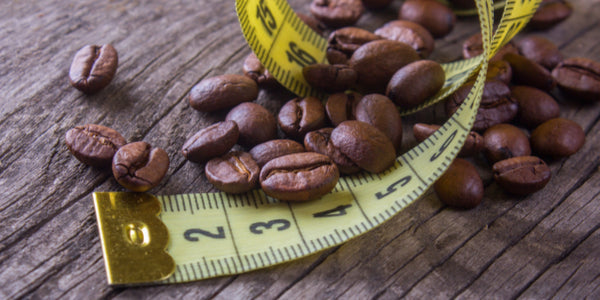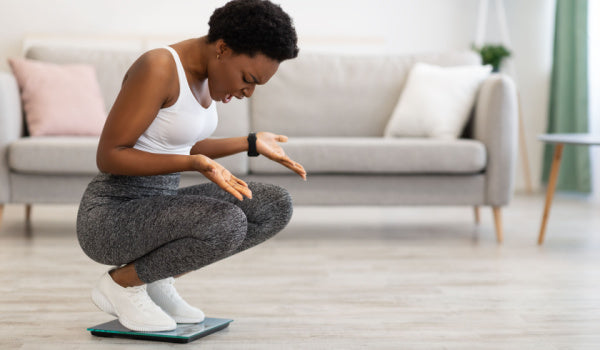
Caffeine is an often sought out "metabolic enhancer" and "fat burner" amongst dieters and fitness enthusiasts alike.
And since coffee is one of the most well-known and prominent suppliers of caffeine, can that cup of joe increase metabolism and help burn fat?
Does Coffee Help You Lose Weight?
There is evidence suggesting you may lose weight with coffee related to its natural caffeine supply and its potential ability to enhance sports performance, increase energy expenditure, and mobilize fat.
Coffee Provides Caffeine
According to a poll presented by Statista, 58 percent of consumers identify "to wake me up" is the reason for drinking coffee. This is only second to the leading reason of 62 percent of coffee drinkers "liking the taste."
Caffeine Enhances Sports Performance
The Journal of the International Society of Sports Nutrition positions caffeine can be effective for enhancing sport performance. However, a greater intake does not lend greater results.
In the report, sports performance improved when caffeine was consumed in low-to-moderate dosages, or approximately 3 to 6 milligrams per kilogram (mg/kg), and overall does not result in further enhancement in performance when consumed in higher dosages, or equal to or greater than 9 mg/kg.
Taken together, using moderate caffeine to improve productivity and physical performance can in turn foster weight loss by keeping active and burning calories.
Caffeine Increases Energy Expenditure
Energy expenditure describes the amount of energy (or calories) one metabolically requires to carry out physical functions such as breathing, digesting food, and moving. One can raise energy expenditure in a number of ways, including increasing physical activity, which can help facility weight loss.
However, not only can caffeine stimulate more physical activity to burn more calories, but coffee consumption shows to increase resting energy expenditure (REE), or the calories expended while at complete rest.
Furthermore, a study published in the Journal of the American College of Nutrition shows 6 milligrams of caffeine per kilogram can change body temperature in women. And the results were not solely dependent on caffeine, as the chlorogenic acid also correlated with the REE values.
Caffeine May Mobilize Fat
Impaired fat metabolism makes it difficult to lose weight and essentially immobilizes fat. Caffeine shows to activate the sympathetic nervous system, which is necessary for inducing lipolysis, or the process of breaking down fat into free fatty acids (FFAs).
Upon the release, however, it is important to clear the free fatty acids by burning them through exercise or a negative energy balance. Without proper clearance, the FFAs essentially continue to circulate within the blood stream and increase the risk of insulin resistance and inflammation.
Coffee Offers More Benefits
While the caffeine content is well-explored for weight loss strategies, the main beneficial effects of coffee consumption seem to rely on other compounds it supplies.
Coffee is rich in a number of nutrients, antioxidants, anti-inflammatories, including riboflavin, pantothenic acid, manganese, potassium, magnesium, niacin, chlorogenic acids, and diterpenes.
Chlorogenic acids also have shown to lower blood pressure and improve glucose metabolism, while diterpenes protect from of inflammation. Nonetheless, the benefits of coffee include, but certainly not limited to, heart health, diabetes management, cognition, and longevity.
Additional Considerations to Lose Weight with Coffee
How much caffeine and coffee for weight loss?
While there is no specific amount known to lose weight with coffee, the Mayo Clinic suggests up to 400 milligrams (mg) of caffeine a day appears to be safe for most healthy adults. To put this in perspective, a typical cup of coffee provides approximately 75 to 100 mg of caffeine, which translates to about four to five cups of joe daily.
Though caffeine effects everyone differently, exceeding the limit may cause some adverse side effects, including accelerated breathing and heat rate, dehydration, anxiety, irritability, dizziness, headache, lack of concentration, digestive distress, and restlessness.
Speaking of restlessness… Though coffee can energize your day and workouts, it should not be used in lieu of sleep. Being sleep deprived is a serious health concern and such benefits of coffee can be negated without adequate shuteye each night. (In fact, sleep deprivation can interfere with weight loss efforts and even lead to weight gain!)
Let it be known long-term consumption of coffee and caffeinated products can actually cause the body to metabolically adapt to their effects. This adaptation may be mitigated by rotating coffee intake to your advantage, including using it solely as a means to enhance concentration or workout performances as needed.
But remember, more is not always better when it comes to coffee and caffeine…
How many calories are in black coffee?
There are less than 5 calories in an 8-ounce cup of black coffee, making it a low-calorie option.
That being said, to pour out such valuable benefits that cup of joe shows to offer, nutrition experts encourage consuming actual coffee, not the drinks that are essentially nothing more than syrup and milk, all topped with whipped cream.
Doctoring up coffee with added ingredients can eventually deter the benefits it offers, as adding on numerous calories from sugar and fat can lead to other health concerns.
But if unable to sip on a cup of plain black coffee, there are a number of methods to make America’s favorite drink healthier, including the following tips:
• Lightly sweeten with Stevia, honey, or other natural sugar substitute
• Add a small splash of milk or creamer
• Spice up the flavor with cinnamon and nutmeg
• Lessen the number of syrup pumps or utilize sugar-free options when available
• Make a healthy seasonal coffee in the comfort of your own home, including pumpkin spiced latte, chocolate mocha, and eggnog coffee
• Look for "light" or "skinny" drink options on the menu
• Order "skinny" options at Starbucks
So while coffee is not the ultimate ticket to weight loss, it can help synergize results when complemented with a well-balanced diet, regular physical activity, and adequate sleep. (And especially when consumed in its purest form!)







